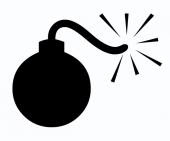Live And Let Die
Ian Fleming
(1954)
My copy of the second Bond novel opens with a short preface
by Louise Welsh. I don’t really see the connection, but she makes a great point
about the success of the Bond books in the ‘50s. It doesn’t quite correlate with
historical timelines we take for granted but in 1954, Britain finally
stopped rationing. That’s nine years of rationing after winning World War II.
That’s a tough result.
It nicely puts this second adventure in context. Basically,
this tale expands on Casino Royale in
almost every conceivable way. The language and style are much more self-assured,
Fleming’s time as a travel writer coming to the fore. The descriptions as Bond
arrived in America
for the first time (“since the war”) are charming and childlike in their
wonder, especially from a 21st century perspective. The opening
scenes in London , shrouded in thick fog are
swept aside for an adventure that also takes in Jamaica and it’s coral reefs.
Surely, at the time, these kinds of places were unimaginable exotic. Ten years
later, as the books were made into films, this desire to show people something
they’d never seen before was as strong and in demand as ever. So, as an
historical piece alone, they serve as a very interesting reminder of how the
world, and Britain ’s
place in it, was changing in the ‘50s.
The plot itself was eventually stripped bare by various
films, most of them not Live And Let Die.
Whilst some of my Casino Royale review was concerned with the rather ugly language towards women, here we have
the pleasure of seeing a ‘50s take on the ‘negro’. The main villain is Mr Big,
a black chap who may or may not be working for the soviets. He lives in Harlem
and the story involves Bond travelling around Harlem
and investigating ‘negro culture’ which, this book would have us suggest, is a
mix of voodoo and drug pushing. And violence. And communism, which is even
worse, obviously.
It’s not racist though is it? I just see it as a product of
the times. If you wanted to psychoanalyse it, you could put it in the context
of the changing role of Britain
in world affairs again, and some fear of the black man. I don’t think that’s
the case. I think the culture of Harlem and of Voodoo were just as equally
exotic and foreign as Miami
and Jamiaca. Though the decision to write all the ‘black’ language phonetically
does result in it appearing in your head like a bad ‘70s sitcom.
It’s a pacey read. There’s a lot more action than Casino Royale and a lot more cunning
from the villains. The finale is well handled and is genuinely tense. But it is an
easy read. There’s no great literary value in it. The pleasure is seeing which
bits went into which films and enjoying the new bits. The character of Bond is
still a bit faceless; he is efficient, job-committed and cold. After reading
the first two books, it does seem that Daniel Craig has hit upon the most
‘Bond’ Bond yet. But I think it works best as an historical novel, in relation
to pop culture. The stuff that sells; sex, violence, escapism, heroism is the
same as it ever was. But it is interesting reading an example of where it all
began, certainly in relation our 21st century understanding and
experiences of those genre traits.
Dean Freeman



No comments:
Post a Comment